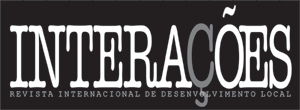Abstract
The article seeks to contribute to discussions linked to the interference of the form of government called authoritarianism, considering the intention, formulation, conduction and execution of public policies. It also develops a critical analysis on the subject, bearing in mind the finding that contemporary authoritarian regimes have demarcated an ideological guideline capable of distorting the purposes contained in the conception of a public policy, in addition to trying to inhibit free thinking, the participatory mechanism of collectives social rights, reducing freedom and equality, seen as founding elements of the democratic system. The study consists of exposing ideas and perceptions on the subject, seeking originality, without intending to exhaust its content. The analysis pointed out that authoritarian governments tend to make decisions based on ideological postulates, highlighting and valuing factors such as violence, coercion, intimidation and inequality, almost always denying societal aspirations. The proposal that guides the positioning of governments that, despite being inserted in an environment supposedly structured on democratic foundations, actually act or guide the action of third parties - followers - to explore their dissatisfaction and discontent based on fallacies or untruths that, normally, allow an atmosphere of hatred, insubordination, insurrection, xenophobia and ethical deviation, behaviors that are closely connected with anarchy and barbarism, scenarios incompatible with the Democratic State of Law. In this regard, Public Policies aimed at mitigating social inequalities and promoting social justice are placed in the background, given that the thirst for power is decisive, abandoning a propositional agenda that could be capable of mitigating imbalances - social, economic, cultural, ethnic -, which constitute the foundation of social justice. As a result, this distance between State and society inhibits any possibility of dialogical solution, and such asymmetry prevents government actions from effectively acting in solving the collective problems of a society that still lacks ethical examples.
Keywords
public policies; authoritarianism; coercion; inequalities; social injustice
